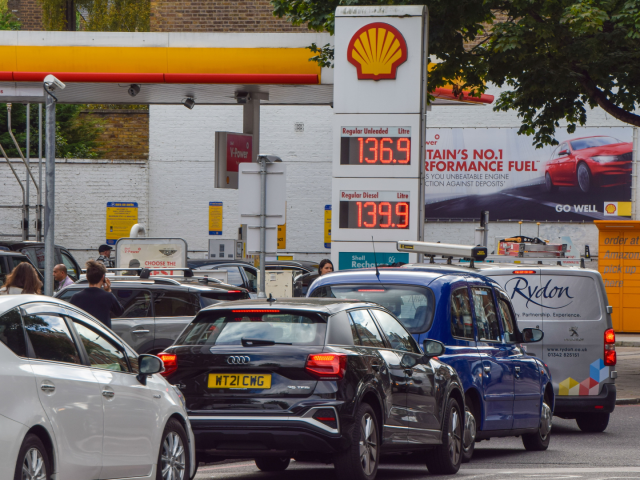The United Kingdom saw a £500 million increase in fuel exports to the EU in April despite the soaring costs of energy domestically, the Office for National Statistics has revealed.
A record increase in exports to the European Union of £16.4 billion in April was driven in large part by shipments of liquid natural gas (LNG) and crude oil to the bloc from the UK, the ONS said this week.
The majority of the £500 million in energy exports were sent to the Netherlands and Ireland before being sent on to other EU member states as the bloc scrambled for alternatives to Russian fuel amid the war in Ukraine and subsequent Western sanctions on Moscow.
As the UK is not a net producer of either crude oil or natural gas — with successive Conservative governments refusing to tap Britain’s natural resources in favour of supposedly green alternative forms of energy — the data implies that the country is being used as a hub for international transport for fuel.
There are currently three main terminals in Britain, with two at Milford Haven in Pembrokeshire and another on the Isle of Grain in Kent. All three have seen imports dramatically increase since the invasion of Ukraine, with the United States and Qatar, in particular ramping up exports to Europe. By contrast, major energy importer has zero sea terminals for importing gas.
While the UK has one of the higher thresholds for terminal capacity of liquid natural gas in Europe, it has limited ability to actually store natural gas domestically after the Theresa May administration refused to subsidise the largest storage facility, forcing the ‘Rough‘ site to close down in 2017.
According to an analysis from the HSBC bank, Britain only has the capacity to store two per cent of its annual usage. In contrast, countries such as France, Italy, Germany, and the Netherlands have the ability to store over one-quarter of their yearly fuel needs.
Jack Sirett, of the financial services firm Ebury, told The Guardian: “The UK is a key global importer of the fuel which it then exports to Europe via pipeline, particularly given small storage capability in the UK.”
In addition to failing to invest in adequate energy storage facilities, the British government has steadfastly refused to lift the moratorium on fracking for natural gas, despite large deposits believed to be available in the Bowland Shale area, among others.
The government of Prime Minister Boris Johnson has also shied away from cutting taxes, including the Value Added Tax (VAT) on energy — despite arguing in favour of such a move in the Brexit campaign.
Instead, the government has adopted a more socialist approach to the energy and cost of living crises gripping the nation, announcing last month that it will impose a windfall tax on the profits of oil and gas companies to subsidise government handouts to those most affected by the economic calamity caused in large part by the government’s lockdown policies.
The imposition of taxes on the industry will likely see costs rise yet again for consumers, who are already paying record prices at the pump. Over the weekend drivers paid a record 185.04p per litre ($8.44 per gallon) of petrol and 191.03p ($8.74 per gallon) for diesel on average.
Follow Kurt Zindulka on Twitter here @KurtZindulka

COMMENTS
Please let us know if you're having issues with commenting.